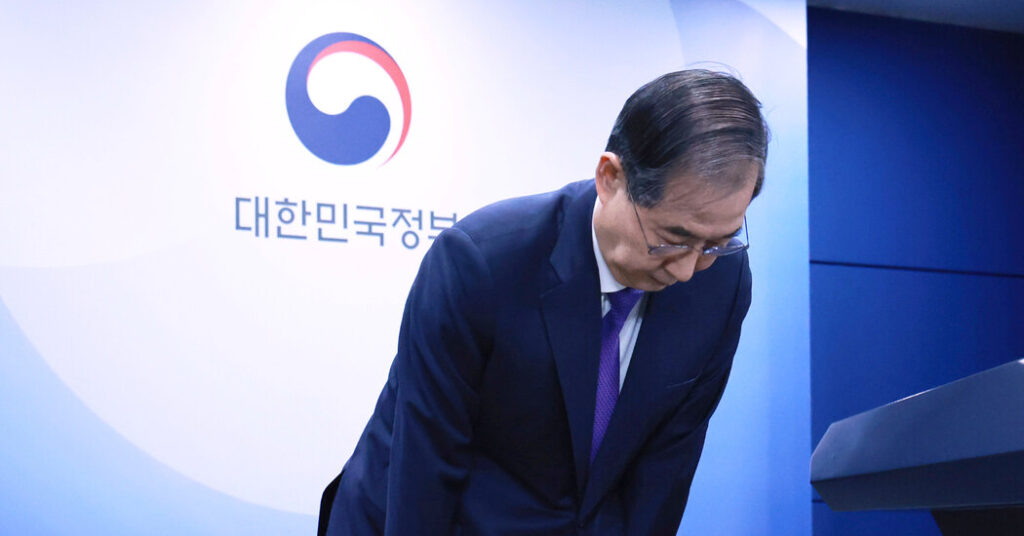On Thursday, South Korea’s acting president and Prime Minister Han Duck-soo announced his resignation, indicating his intention to run for the position permanently in the June 3 presidential election.
For weeks, Mr. Han had been contemplating a run in the upcoming election, which was prompted by the impeachment and removal of former President Yoon Suk Yeol, who had appointed him as the second-in-command in his administration.
Mr. Han stepped down shortly after a Supreme Court decision that could threaten the election prospects of Lee Jae-myung, the leading candidate from the ruling Democratic Party, who is currently expected to perform well in the election.
This ruling introduces additional uncertainty ahead of an election that many South Koreans hope will resolve the political instability that has plagued the nation since Mr. Yoon declared martial law last year, an episode that led to his ousting. Mr. Han briefly took over from Mr. Yoon before also facing impeachment, but was later reinstated as acting president by the Constitutional Court.
“I have chosen to resign to do everything in my power to address the crisis our nation is experiencing,” Mr. Han stated on Thursday.
While he did not explicitly announce his candidacy for president, his statement was interpreted by South Korean media and political insiders as a clear sign of his ambition to run. Reports suggest that he plans to hold a press conference later this week to officially declare his candidacy.
Earlier the same day, the Supreme Court reversed a previous ruling that had cleared Mr. Lee of electoral law violations, sending the case back for a new trial. The Court indicated it considers Mr. Lee guilty, but his fate will depend on the lower court’s future ruling and potential Supreme Court review.
Mr. Lee’s presidential aspirations hinge on the timing of the lower court’s decision and the severity of any penalties he might face; if found guilty and issued a fine above 1 million won (approximately $700), he would be barred from running for office for five years.
It remains unclear when the lower court will resume deliberations.
The Supreme Court’s recent ruling has raised doubts about Mr. Lee’s fitness for leadership, allowing his political opponents to question his candidacy.
Mr. Lee secured his party’s presidential nomination with strong support, receiving nearly 90% of the votes in his party’s primary on Sunday.
He has consistently led public opinion polls as the preferred presidential candidate among South Koreans in recent weeks.
Some members of the opposition People Power Party have encouraged Mr. Han to run for president. This party, which is the second-largest in the country, plans to choose its candidate on Saturday, potentially leading to negotiations between that candidate and Mr. Han over party representation in the election. Mr. Han is currently not affiliated with any political party.
Following Mr. Han’s resignation, Finance Minister Choi Sang-mok, who is next in the governmental hierarchy, will assume the role of acting president.


